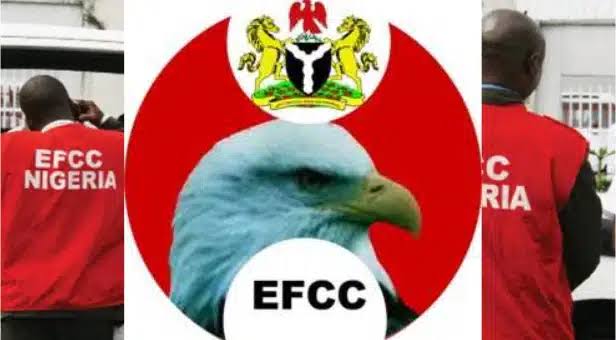Nigeria News
Banking Industry Now A Hotbed For Fraud – EFCC Cautions

The Economic and Financial Crimes Commission, EFCC, has issued a warning, noting that the Nigerian banking sector is becoming a hotbed of fraudulent activities, jeopardizing the economy and the financial sector’s stability.
EFCC Chairman, Ola Olukoyede, speaking in Abuja on Sunday at the annual conference of the Association of Audit Executives of Banks in Nigeria (ACAEBIN), underscored the commission’s growing concerns over the sector’s escalating fraudulent activities and the challenges they bring.
The conference had the theme: “The role of internal auditor in promoting stability in the financial services sector and national economic growth”.
Represented by the Commission’s Director of Internal Audit, Idowu Apejoye, he stressed that the group, as Chief Audit Executives of Banks, needs to increase efforts to curb these activities to uphold the trust and integrity of the sector.
“The sector is crucial as the primary supplier of credits to individuals, organizations, businesses and governments. The sector also offers several financial services such as mobilization, safeguarding of deposits, facilitating transactions and contributing to economy stability. It is one of the most important employer of labour and driver of development through its multifarious networks.
“The diversity of the banking sector is also a strength to the economy. Whether retail, commercial investment or multi-banking, no economy grows without banking, and this is why every effort should be made to tackle fraudulent practices in the sector. In Nigeria particularly, the banking sector is increasingly becoming a cesspool of fraudulent activities, and this is raising considerable challenges and concerns to the Economic and Financial Crimes Commission”, he added.
Olukoyede highlighted that banking fraud in Nigeria encompasses both internal and external elements.
Internal fraud involves the direct misappropriation of customers’ deposits, unauthorized approval of loan facilities, forgery, and various illicit practices. External fraud includes hacking, ATM fraud, conspiracy, and collusion, among other illicit activities.
He also mentioned the concerning collaboration between insiders and outsiders, where bankers collaborate with external parties to perpetrate fraud.












